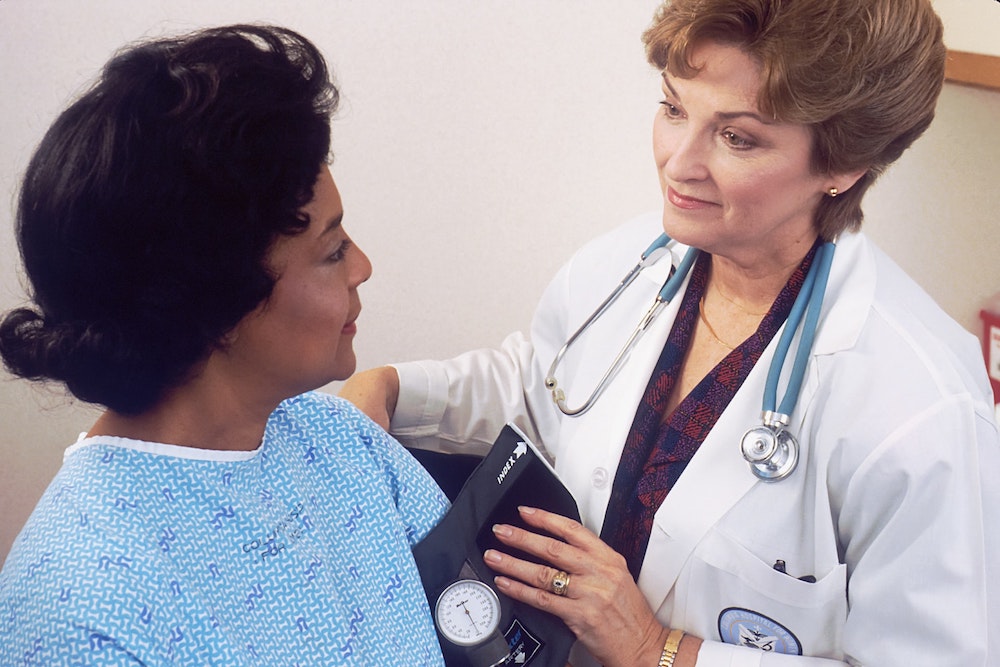Irritable bowel syndrome (IBS) previously referred to functional gastrointestinal disorders is a long lasting, non-life threatening common disorder of gut-brain interaction. Historically, it was thought to be purely a psychosomatic disorder although psychosocial factors have been note to be involved.
IBS is better understood as a combination of both physiologic and psychosocial factors. Emotional factors, diet, drugs, or hormones have been found to precipitate or aggravate gastrointestinal symptoms.
What is Irritable Bowel Syndrome (IBS)?
Irritable bowel syndrome (IBS) is a group of symptoms that occur together, including repeated abdominal pains and changes in bowel movements which may be diarrhea, constipation, or both.
Types of Irritable Bowel Syndrome
Irritable bowel syndrome is categorised based on the type of bowel movement present. This categorisation affects the choice of treatment. Often, people with IBS have normal bowel movements some days and abnormal ones on other days. Thus, there are 3 types of IBS viz:
-
Irritable Bowel Syndrome with constipation (IBS-C)
In this type, the stool is hard and lumpy.
-
Irritable Bowel Syndrome with diarrhea (IBS-D)
Stool is loose and watery.
-
Irritable Bowel Syndrome with mixed bowel habits (IBS-M)
Both hard and lumpy bowel movements and loose and watery movements on the same day are experience.
Causes of Irritable Bowel Syndrome
The cause of Irritable Bowel Syndrome (IBS) is not known and the pathophysiology is still not properly understood but however, both psychosomatic and psychosocial factors have been implicated.
-
Physiologic factor
A variety of physiologic factors seem to be involved in IBS symptoms. These factors include:
-
Increased intestinal sensitivity (also known as visceral hyperalgesia)
This refers to hypersensitivity to normal amounts of intraluminal distention and heightened perception of pain in the presence of normal quantities of intestinal gas. Perhaps 1 in 7 patients has reported having IBS symptoms after an episode of acute gastroenteritis (termed post-infectious IBS).
Many patients have no demonstrable physiologic abnormalities, and, even in those who do, the abnormalities may not correlate with symptoms.
-
Altered intestinal motility
Constipation may be explained by slower colonic transit, and diarrhea explained by faster colonic transit. Abdominal discomfort after eating may be attributed to:
- Exaggerated gut contractions in response to a meal.
- The presence of high amplitude-propagated contractions of the gut.
- Hypersensitivity to normal gut distensions.
- A combination of all the above listed factors.
Ingestion of fat may increase intestinal permeability and exaggerate hypersensitivity. Please note that foods high in FODMAP (Fermentable, Oligosaccharides, Disaccharides, Monosaccharide, and polyols) content, like garlic, onion, baked beans, rye and more, cause digestion issues for certain groups because they are poorly absorbed in the small intestine and increase gut motility and secretion.
-
Hormonal fluctuations
Hormones affecting bowel functions have been reported in women. Also sex hormones effect on gastrointestinal transit is found to be subtle.
-
Psychosocial factors
Psychologic distress is common among patients with IBS.e.g
- Anxiety disorders.
- Depression.
- Somatization.
- Sleep disturbances.
However, stress and emotional conflict do not always coincide with symptom onset and recurrence. Some patients with IBS seem to have a learned aberrant illness behavior (i.e., they express emotional conflict as a gastrointestinal complaint, usually abdominal pain).
The physician evaluating patients with IBS, particularly those with refractory symptoms, should investigate for unresolved psychologic issues, including the possibility of sexual or physical abuse. Psychosocial factors can also affect the outcome in IBS.
Who is At Risk for Developing Irritable Bowel Syndrome?
The condition most often occurs in people in their late teens to early 40s. Women are twice more likely than men to get IBS. The following risk factors have been identified viz:
-
Being a woman
About twice as many women as men have the condition..It’s not clear why, but some researchers think the changing hormones in the menstrual cycle may have something to do with it. So far, studies haven’t borne this out.
-
Age
IBS affects people of all ages, but it’s more likely for people in their teens through their 40s.
-
Family history
The condition seems to run in families. Some studies have shown that your genes may play a role
-
Emotional trouble
Some people with IBS seem to have trouble with stress, mental disorder, or have been through a traumatic event in their lives, such as sexual abuse or domestic violence. It’s not clear what comes first — the stress or the IBS. But there’s evidence that stress management and behavioural therapy can help relieve symptoms in some people with the condition.
-
Food sensitivities
Some people may have digestive systems that rumble angrily when they eat dairy, wheat, a sugar in fruits called fructose, or the sugar substitute sorbitol. Fatty foods, carbonated drinks, and alcohol can also upset digestion. There’s no proof any of these foods cause IBS, but they may trigger symptoms.

-
Medications
Studies have shown a link between IBS symptoms and antibiotics, antidepressants, and drugs made with sorbitol
-
Other digestive problems
Stomach flu, traveller’s diarrhoea or food poisoning and other gastrointestinal tract infections can change the immune system so that it responds to certain foods as if they’re a threat, like germs or viruses. Researchers are looking into these early findings.
Irritable Bowel Syndrome Symptoms
- Diarrhoea (often described as violent episodes of diarrhoea)
- Constipation
- Constipation alternating with diarrhoea
- Abdominal pains or cramps, usually in the lower half of the abdomen, that get worse after meals and feel better after a bowel movement
- A lot of gas or bloating
- Harder or looser stools than normal (pellets or flat ribbon stools)
- Protuberant abdomen
- Mucoid stools
- Feeling like you still need to move bowels after you just did
- Food intolerance
- Tiredness
- Anxiety
- Depression
- Heart burn and indigestion
- Headaches
- Needing to urinate often
Investigations for Irritable Bowel Syndrome
There are no specific lab tests that can diagnose IBS. The doctor will see if your symptoms match with the definition of IBS, and they may run tests to rule out conditions. Laboratory testing may include:
- Complete blood count
- Biochemical profile (including liver tests)
- For patients with diarrhoea predominance
-
- Serologic markers for celiac disease (tissue-transglutaminase IgA with an IgA level)
- testing for inflammatory bowel disease with faecal calprotectin or faecal lactoferrin and C-reactive protein are recommended.
- For patients with constipation
-
- Measurement of thyroid-stimulating hormone and calcium levels is recommended.
- Colonoscopy
Colonoscopy is recommended for patients older than 45 to exclude colonic polyps and tumours. The mucosal and vascular patterns in IBS usually appear normal. In patients with chronic diarrhoea, particularly older women with more severe diarrhoea, mucosal biopsy can rule out possible microscopic colitis.
- Additional studies such as :
-
- Ultrasonography.
- CT-Scan, barium enema x-ray, upper gastrointestinal endoscopy, and small-bowel x-rays should be undertaken only when there are other objective abnormalities.
- Faecal fat excretion or pancreatic elastase should be measured when there is a concern about steatorrhea (increased fat excretion in the stool).
- Small-bowel evaluation (e.g., enteroscopy, capsule endoscopy) is recommended when mal-absorption is suspected.
- Testing for carbohydrate intolerance or small intestinal bacterial overgrowth should be considered in appropriate circumstances.
Please note that testing for enteric pathogens, including Giardia, is no longer recommended for patients with IBS unless there is a high pretest probability of infection. If there are definite risk factors for Giardia exposure (e.g., compromised water supply, travel, camping etc), fecal immunoassays or polymerase chain reaction testing for Giardia is recommended.
Diagnosis of Irritable Bowel Syndrome
The diagnosis of IBS can reasonably be made using the Rome criteria as long as patients have no red flag findings, such as rectal bleeding, weight loss, or other findings that might suggest another etiology.
The Rome criteria are standardized symptom-based criteria for diagnosing IBS.
These criteria require the presence of abdominal pain for at least 1 day/week in the last 3 months along with ≥ 2 of the following:
- Pain related to defecation.
- Pain associated with a change in frequency of defecation.
- Pain associated with a change in consistency of stool.
Treatment of Irritable Bowel Syndrome
-
Support and understanding
Therapy is directed at specific symptoms. Patients should be educated about the disorder (e.g., normal bowel physiology and the bowel’s hypersensitivity to stress and food) and reassured after appropriate tests, about the absence of a serious or life-threatening disease.
Regular physical activity helps relieve stress and assists in bowel function particularly in patients with constipation.
-
Normal diet, avoiding gas-producing and diarrhoea-producing foods
In general, a normal diet can be followed. Meals should not be overly large, and eating should be slow and paced. Patients with abdominal distention and increased flatulence may benefit from reducing or eliminating beans, cabbage, and other foods containing fermentable carbohydrates.
Reduced intake of sweeteners (e.g., sorbitol, fructose), which are constituents of natural and processed foods (e.g., apple and grape juices, bananas, nuts, raisins) may alleviate flatulence, bloating, and diarrhoea. Patients with evidence of lactose intolerance should reduce their intake of milk and dairy products.
Patients can try reducing their intake of the aforementioned food categories one at a time and noting the effect on their symptoms or they can try a low-FODMAP (fermentable oligosaccharides, disaccharides, monosaccharides, and polyols) diet, which restricts all of the aforementioned food categories In addition, a low-fat diet may reduce abdominal symptoms after food.
Patients should be encouraged to drink more fluids. Dietary soluble fiber supplements may soften stool and improve the ease of evacuation however, excessive use of fiber can lead to bloating and diarrhoea, so fiber doses must be individualised. Occasionally, flatulence may be reduced by switching to a synthetic fiber preparation.
Increased fiber intake and hydration for constipation is advised.

-
Drug therapy directed at the dominant symptoms
Drug therapy is directed toward the dominant symptoms.
-
Anticholinergic drugs
- These are drugs that block the action of acetylcholine. For example, hyoscyamine 0.125 mg orally (30 to 60 minutes before meals) may be used for their antispasmodic effects, but data on their effectiveness are limited.
-
In patients with constipation-predominant Irritable Bowel Syndrome (IBS-C)
- The chloride channel activator, lubiprostone 8 mcg orally twice a day and
- Theguanylatecyclase C agonists,linaclotide 290 mcg orally once a day.
- plecanatide 3 mg orally once a day may be helpful.
- Tenapanor inhibits the gastrointestinal sodium/hydrogen exchange and is available for the treatment of IBS-C at a dosage of 50 mg orally 2 times a day.
- Polyethylene glycol laxatives have not been well studied in IBS. However, they have been shown to be effective for use in chronic constipation and for bowel lavage before colonoscopy and are thus frequently used for IBS-C.
- Prucalopride is a highly selective serotonin receptor agonist that is available for chronic constipation.
-
In patients with diarrhoea-predominant Irritable Bowel Syndrome (IBS-D)
- Diphenoxylate 5 mg/ atropine sulfate 0.05 mg orally (2 tablets or 10 mL)
- Loperamide 2 to 4 mg orally may be given before meals. The dose of loperamide should be titrated upward to reduce diarrhea while avoiding constipation (maximum dose 16 mg/day).
- Rifaximin is an antibiotic that has been shown to relieve symptoms of bloating and abdominal pain and to help decrease looseness of stools in patients with IBS-D. The recommended dosefor IBS-D is 550 mg orally 3 times a day for 14 days.
- Alosetron is a 5-hydroxytryptamine (serotonin) 3 (5HT3) receptor antagonist that may benefit women with severe IBS-D refractory to other drugs. Because alosetron has been associated with ischemic colitis, its use is under a restricted prescribing program.
- Eluxadoline has mixed opioid receptor activity and is indicated for treatment of IBS-D; however, because of the risk of pancreatitis, it cannot be used in patients who have had a cholecystectomy, have sphincter of Oddi dysfunction, have liver disease, or drink more than 3 alcoholic drinks a day.
-
Tricyclic antidepressants (TCAs)
These medications help relieve symptoms of diarrhoea, abdominal pain, and bloating in some patients. These drugs are thought to reduce pain by down-regulating the activity of spinal cord and cortical afferent pathways arriving from the intestine.
Secondary amine TCAs (eg, Nortriptylinedesipramine) are often better tolerated than parent tertiary amines (eg, Amitriptyline, Imipramine ,doxepin) because of fewer anticholinergic, sedating antihistaminic, and alpha-adrenergic adverse effects.
Treatment should begin with a very low dose of a TCA (eg, desipramine 10 to 25 mg orally once a day at bedtime), increasing as necessary and tolerated up to about 200 mg orally once a day.
-
Selective serotonin reuptake inhibitors
These are sometimes used in patients with anxiety or an affective disorder, but studies have not shown a significant benefit for patients with IBS and they may exacerbate diarrhoea.
-
Probiotics
Probiotics use to treat IBS has increased in recent years given the importance of the intestinal microbiome in this disorder. However, the data on their effectiveness in treating IBS are limited.
Certain aromatic oils (carminatives) can relax smooth muscle and relieve pain caused by cramps in some patients. Peppermint oil is the most commonly used agent in this class.
-
Psychologic therapies
Cognitive-behavioral therapy, standard psychotherapy, andhypnotherapy may help some patients with IBS.
Conclusion
Irritable bowel syndrome (IBS) is a highly prevalent, chronic disorder that significantly reduces patients’ quality of life. In patients with red flag finding, such as older age, weight loss or rectal bleeding, more dangerous disorders should be excluded.
A supportive, understanding and therapeutic physician – patient relationship is essential and also direct drug therapy towards the dominant symptoms is advocated.



